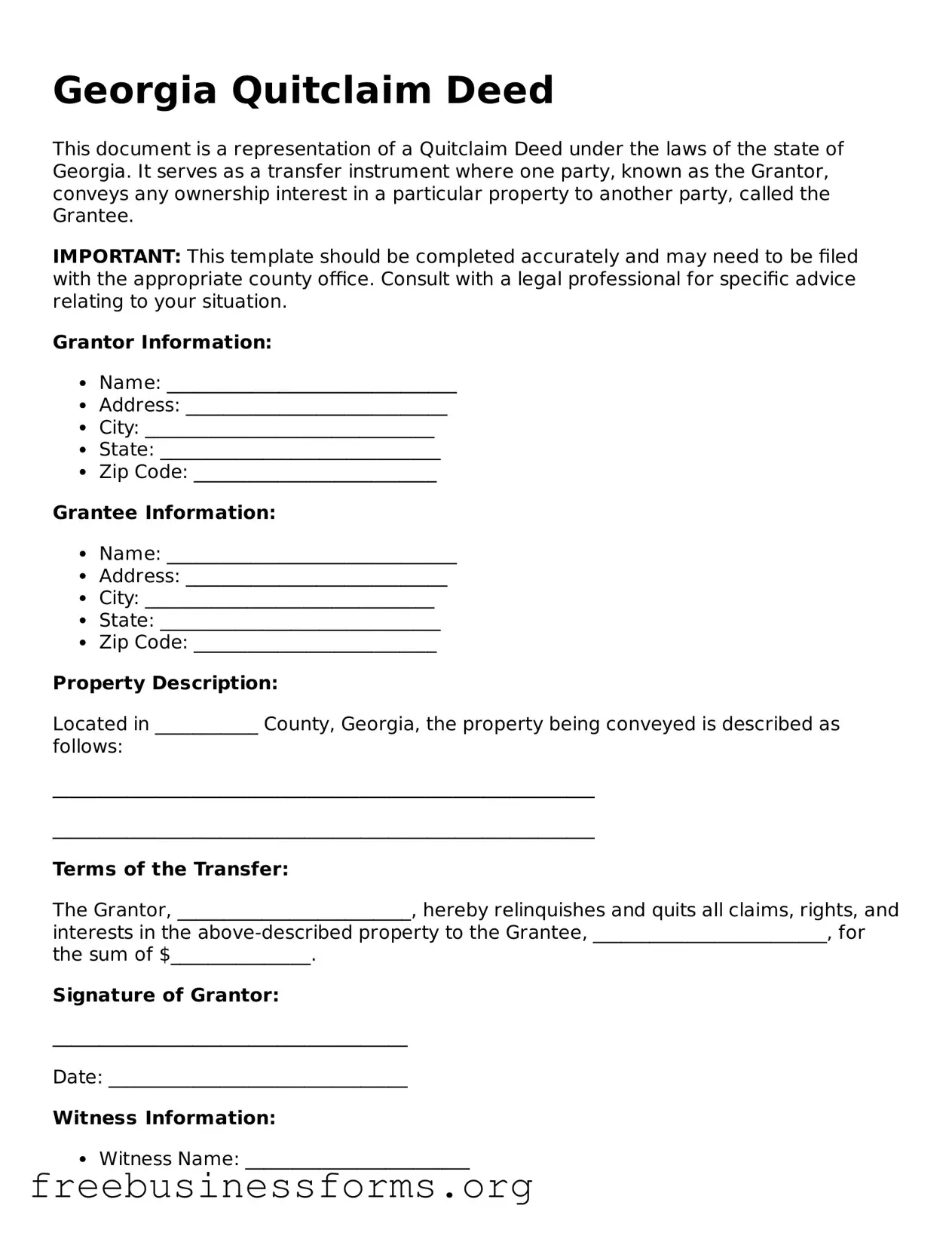Blank Quitclaim Deed Template for Georgia
A Georgia Quitclaim Deed is a legal document used to transfer ownership of real estate from one party to another without guaranteeing that the property title is clear. This form is often utilized in situations where the parties know each other, such as family transfers or between friends. Understanding how this deed works can help facilitate smoother property transactions in Georgia.
Open Form Here

Blank Quitclaim Deed Template for Georgia
Open Form Here

Open Form Here
or
↓ PDF File
Quickly complete this form online
Complete your Quitclaim Deed online quickly — edit, save, download.